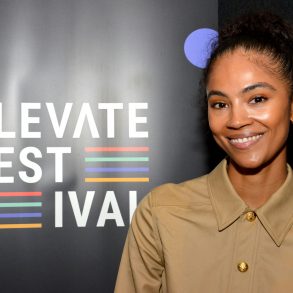From Jacob Frye in Assassins’ Creed, to Vex in Lost Girl, to Dr. Roberts in Murdoch Mysteries, chances are that you’ve crossed paths with one of Paul Amos’ characters over the years. The Toronto-based Welshman has been heavily involved with the Canadian culture scene since his arrival in 2005, working extensively on notable productions (some mentioned before), Canadian films, and more.
Amos’ experience, however, is fundamentally rooted in theatre. After having studied at both the National Youth Theatre and the London Academy of Music and Dramatic Arts, he dabbled a lot in the field with a number of seasons at Ontario’s Stratford Festival, in addition to work with the Royal National Theatre in London.
Richard Sheridan Willis’ A Midsummer Night’s Dream marks Amos’ return to theatre after a whole 10 years, during which time he’s crafted amazing characters on both the small and big screens. We sat down for a chat with him to learn more about the production, the value of theatre as an actor, and really where he is at with his career.
A Midsummer Night’s Dream plays at the The Citadel till March 11, 2018. For tickets visit www.brownpapertickets.com.
1. You are no stranger to the world of theatre, especially Shakespeare with stints at Stratford and the National Theatre in the UK. What pulled you out of your long theatre hiatus and bring you back into the world of the bard? What element about this production sparked your interest?
Well it wasn’t the money. Hahaha
I’ve wanted to come back for quite a while. I would have happily have done theatre a lot lot sooner. It’s been difficult to fit in. I’ve been busy a little bit with TV, Film and the video games and other stuff that it’s been difficult to fit along the-run-of-something in, and commit to it. I got asked by Richard (Director of Midsummer) – who actually worked on bits in Assassins’ Creed – in October if I’d like to do it, and I said yes. I’ve been wanting to come back to theatre for quite some time, so it made a lot of sense for me. The timing sort of worked. It was that time of year where there wasn’t a great deal going on in Toronto other than [lots] of snow. I decided that yeah, well, I can do this. I was really interested in coming back, even though the role of Oberon, doubling up as Theseus, is not necessarily one that I would gravitate to. I was interested by that challenge. Funny enough, as it’s gone alone, it’s been a very good challenge and I didn’t realize how appropriate that part was going to be for me.

2. A Midsummer Night’s Dream is a popular story, one that usually commands big, complex sets when adapted for stage. Willis’ production is a very different experience, especially with its minimalist feel and attitude. Having done Midsummer Night’s Dream before, what elements would you say make this production unique compared to a traditional mount?
I would say that our production is a mild homage to a director called Peter Brook, who did a landmark production of A Midsummer Night’s Dream in the 70’s. It was done in a white box, which ours is kind of very similar. It’s not an actual solid white box. We have white sheers that box it in, and a white floor. In that sense, it was all done through colours; the colours of the costumes. It was a real landmark production, and it very much focused on the words, and the poetry, and the characters in the piece. A Midsummer Night’s Dream was done when Shakespeare was at the height of his power. Its command of the language, of the pen, the characters and the structure, the story is really pretty far advanced. It’s a really beautiful piece. Funny enough, when you often do it in a very big space with elaborate costumes, outdoors (or in an a-house), some of that can get quite lost. You sometimes lose sight of the poetry and the characters, and that’s a shame. Our production really focuses in on that. The results: I think you get slightly more rounded characters, deeper insights into the piece and the actual story, and you really get to listen to the poetry which is quite stunning.
3. The bards work isn’t everyone’s cup of tea, especially his more complex writing. Willis’ minimalist attitude somewhat takes away the abundance of elements to truly give way for bard’s words. Do you feel there are unique pieces to this specific mount that make the bard’s words more, dare I say, easy to connect with and experience?
It’s a different process for actors in the sense that it’s a little bit more filmic, but at the same time there is an immense amount of poetry in there and there is a lot of technique you have to hit. My character Oberon really isn’t in the show much. He sort of shows up and gives bunch of expositions, some of the most beautiful poetry, and then obviously the actor just went back to the dressing room and got drunk: “Ah my words, this person could really get drunk backstage all on his own”. You sometimes give with one hand and take with the other because even though it’s beautiful to listen, focusing on the poetry, etc, you know why it’s a big house show, and you know why it’s done outdoors. The comedy within the show really does benefit from a really big audience. When you have a big audience it becomes very funny, sorta herd mentality right. It’s interesting. Maybe we’ve given up a couple of laughs – not many of them – in order to focus on some of the poetry, where I think it’s a healthy compromise and makes for a very unique experience for this particular show.

4. I’ve had the pleasure of chatting with you over the years, and I’d like to say that you have the trifecta of performance skills: on-screen acting, stage performances, and voice work. What is it about stage work that you like, and has it complemented your other work in specific ways?
It’s kind of like mining. It’s real hands on work being in the theatre. The hours – in terms of your required energy, focus, creativity – are extensive. They force you to mine. You really are creating. There is often not much in those rehearsal rooms other than just yourself and [the spaces you are in]. It’s why I think a lot of British Actors delve consistently into theatre in whatever stage of career they’re at. You will find them coming back every 2-3 years, or every year for some of them, because you get to mine your personal creative field. That often means trying to search in your own soul of creativity for new characters and new ways of expressing yourself through stories, through particular characters within stories. A lot of people gravitate to Shakespeare in that sense because the mine is so rich. One persons Oberon will be different from another’s Oberon, and you are mining your soul of experience and your interpretation of these words, and this poetry, and this art, and it informs them what you are doing in other ways.
I would say the first ten years of my life I did theatre, and I was able to distill particular characters that I was then able to take on to TV and Film, and then distilling that form of things that I found out work for me and things within myself that I was able to express to people through characters and stories. For me, ten years out, and having done a fair bit of TV, and video game work and voice work in that time, it’s been really good for me now that I am transitioning to a more mature phase of my life. It’s good to come and explore some of these characters now and see where I am at, and where I meet this material and these characters and what I can take back into TV and film. Hopefully I can bounce a little bit more frequently between the two, and find some new characters within me that I could take out to the world.
5. While Im sure reflecting on the character you will do is a must before taking on a role, how important of a process is that for you, to choose what you do?
Sometimes I just think that as an artist you always gotta remain open. I don’t know how anything of what I have ever done, how much of a decision I have in it but I know I was open to it. What was in front of me, I was able to take that opportunity. That’s all you ever want to do as an actor. There’s been times maybe when things may have been presented to me and I have not been as open. Maybe things have passed me by that I could have done. As I am moving on, I am realizing that. You really got to take advantage of what presents itself to you and remain open to it, and know when. It’s a learning process, but the universe gives you what you need and you don’t get anything until you are ready to receive it. I find there are some interesting things that are going to be coming up, I am sure. I have good open phase in my life, and I am ready to move on and create some more interesting characters. I’ve got a lot more experience under my belt now. While I am still growing into those 40 year old characters and 50 year old characters, there might me some serious villains down the line. And some heroes! And some anti-heroes!







